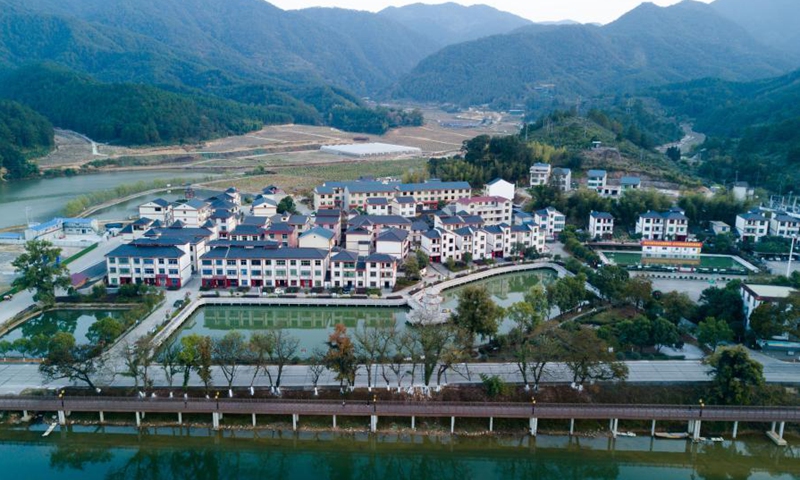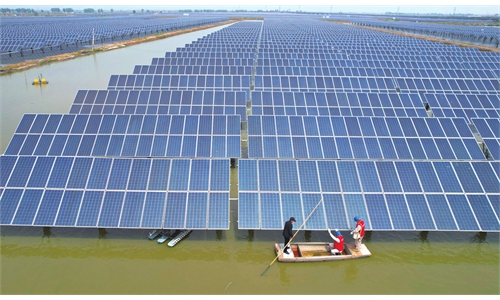China’s CO2 emissions per unit of GDP fall by 34 percent over the past decade: officials

Aerial photo taken on Nov. 20, 2020 shows a view of Changkou Village in Sanming, southeast China's Fujian Province. For more than 20 years, Changkou Village has insisted on green development based on the resource advantages of local mountains, water and farmland. In 2019, the collective economic income of the village was 1.22 million yuan (about 185,550 U.S. dollars) and farmer's per capita disposable income reached 23,600 yuan. (Xinhua/Song Weiwei)
China’s economic development and the ecological environment have been greatly improved over the past decade, officials said at a press conference held by the Publicity Department of the Communist Party of China (CPC) Central Committee on Thursday.
The meeting addressed China's achievements in coordinating the economy and ecological development over the past decade, stressing that the country has seen a significant increase in green development, economic strength and high quality opening-up among other achievements.
China has made significant progress in pursuing green development in coordinating economic and social development and ecological considerations, Han Wenxiu, Executive Vice Minister of the Office of the Central Financial and Economic Affairs Commission of the CPC Central Committee said at the meeting.
Over the past decade China’s CO2 emissions per unit of GDP have fallen by 34 percent and the total installed capacity of wind and photovoltaic power generation, production and sales of new-energy vehicles have topped the world, Han said.
Meanwhile China has made significant contributions to global climate governance through its green development and participation in international negotiations.
It played an active role in pushing forward the Paris Agreement and rolled out a roadmap for hitting peak emissions before 2030 and carbon neutrality by 2060, making important contributions in addressing climate change.
“It has been a decade of solid progress in green development with fewer haze filled days and less black and unclean water, and more blue skies, white clouds, clear water and green mountains,” Han said.
Han said that over the past 10 years China has put in place a complete set of systems to protect the natural environment, supervise ecological and environmental protection and make efficient use of resources.
“These institutional achievements have provided strong support for high-quality economic development and sustainable improvement of the natural environment,” Han said.
Additionally, China’s overall economic strength has continued growing, which has become the biggest engine in driving global economic growth in the past decade.
In 2021 China’s economic growth hit 114 trillion yuan ($16.92 trillion), accounting for 18 percent of global economic output, up from 11.4 percent in 2012. Per capita GDP stood at US$12,500, to the threshold for high-income countries. And in recent years China has been contributed to 30 percent to world economic growth while becoming a mainstay of global economic development.
Foreign trade has also developed steadily and rapidly over the decade, tied with a high level of opening-up. Over the past decade China’s share of exports of merchandise to the world rose from 11 percent to 15 percent. A total of nine free trade agreements have been signed and 21 pilot free trade zones have been constructed, creating new areas and test grounds for all-round and high-level opening-up.
In the past decade the input of China's research and development investment has increased from the 1.91 percent of GDP to 2.44 percent. The country’s ranking in the Global Innovation Index (GII) rose from 34th to12th with major breakthroughs in manned spaceflight and Mars exploration.
Global Times

